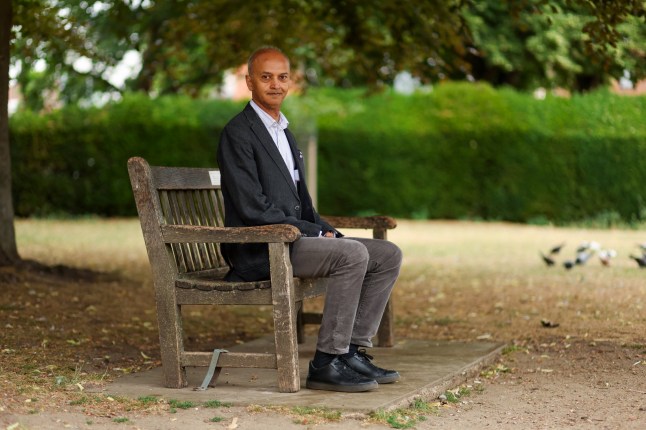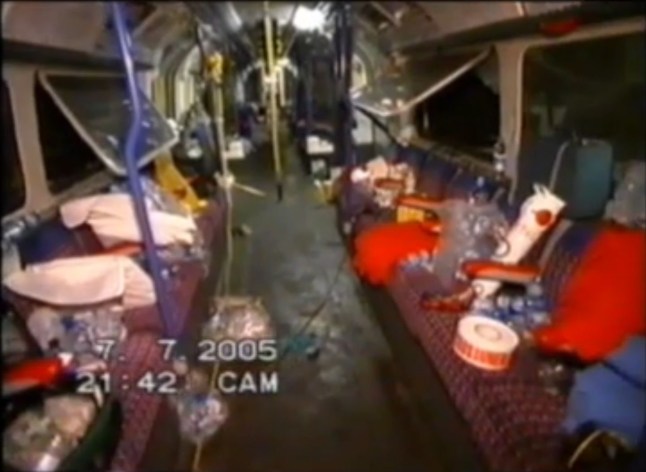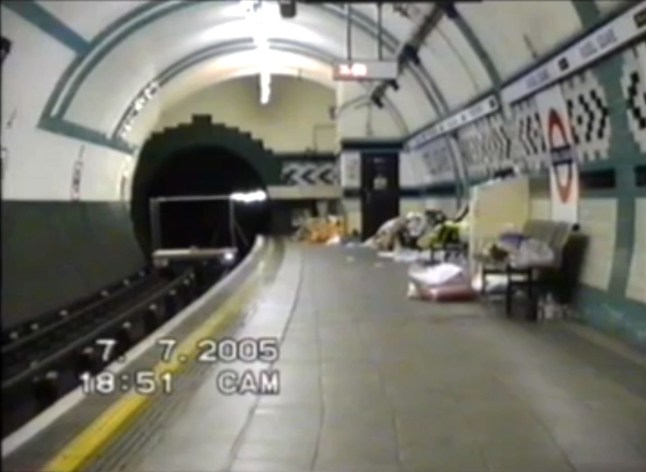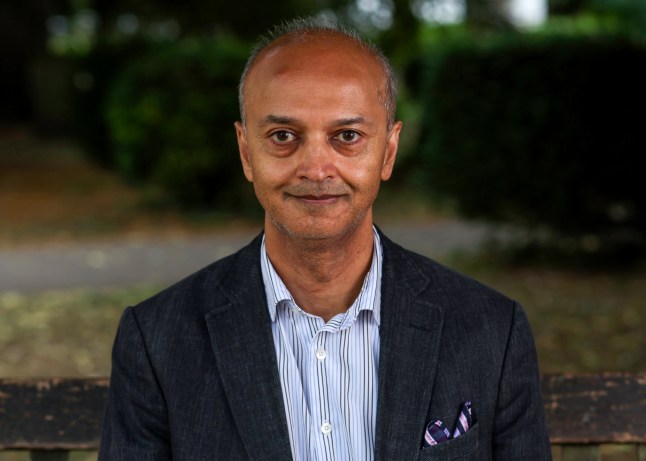Getting off the mainland train that had taken him from Hertfordshire to Kings Cross station,Sudhesh Dahad bundled into the crowd of morning commuters heading towards the Piccadilly Line.
It was a hot summer’s morning with a sense of excitement in the air,as the previous day London had won the 2012 Olympic bid. Amid the buzz,workers determinedly nestled their way onto busy platforms as they did every day,desperate to get the next train.
It was a very crowded platform at Kings Cross,impossible to move. When I got on the train,I couldn’t see anything as I was sandwiched between people,’ Sudhesh remembers. ‘But then,what felt like just seconds after we’d left the station,a bomb went off.’
His train had been approaching Russell Square and without realising it,Sudhesh had been just feet away from the bomber,who was in the next carriage.
The moment the blast happened,the dad-of-one recognised almost immediately it was a terror attack rather than an accident.
‘With the UK’s involvement in Iraq the terror threat was so high,and the London Underground is an easy target,I knew it was only a matter of time. But like everyone else,I assumed I was invincible,’ Sudhesh tells Metro.
52 people were killed,and nearly 800 more were injured when four suicide bombers struck London’s transport network at rush hour on July 7 2005. Three of the blasts occurred on the London Underground around 8.50am near Aldgate,Edgware Road and Russell Square stations.

Sudhesh Dahad was approaching Russell Square station from Kings Cross on the Piccadilly Line when a bomb went off just metres away from him (Picture: Chris Radburn)

Inside the train Sudhesh was on shows the bomb damage to the neighbouring carriage where the suicide bomber struck (Picture: Gavin Rodgers/REX/Shutterstock)
On Sudhesh’s train,26 were killed – the largest death toll of the four explosions.
A fourth device exploded an hour later on a bus close to British Transport Police’s HQ.
Despite being so close to one of the bombs,Sudhesh walked out of the station with cuts and perforated ear drums,while others were carried out in stretchers.
‘At first it just sounded like a popping noise,but I now realise it had actually briefly deafened me,’ Sudesh explains. ‘I even started to think I had just imagined it,but then everything went dark.’
To get the latest news from the capital visit Metro's London news hub.
The lights went out,and those able to stand tried desperately to move with the crush to avoid falling to the floor as the emergency brakes were hit.
Sudhesh said his survival instinct soon kicked in,and his only thought was getting off the train and out of the station.

Devastation on the platform at Russell Square (Picture: Gavin Rodgers/REX/Shutterstock)
‘My emotions were completely numbed,’ he remembers. ‘I didn’t even feel any of my injuries,how could I when I saw people being stretchered out near Russell Square?
It felt like a close call. It was at the next set of double doors down and had there not been such a density of people,I would have been more injured.
It wasn’t until a few hours later that the scale of the attacks and the extent of those killed and injured were fully realised. It was something the UK had not seen since World War Two.
20 years on,as tensions rise again in the Middle East,Sudhesh fears we might see a return to the conditions which saw the four suicide bombers inspired to carry out their deadly attacks.

Survivor Sudhesh Dahad says he still finds it hard to talk about the attack (Picture: Chris Radburn)
‘With the UK involved in the Iraq war and growing conflict in the Middle East,the terror threat in London was high back then. Now we are seeing history repeat itself.’
Although not ordering the British military to join today’s attacks,Sir Keir Starmer,has said Iran ‘can never be allowed to develop a nuclear weapon’ as the UK watches the US launch strikes on Iran.
United News - unews.co.za